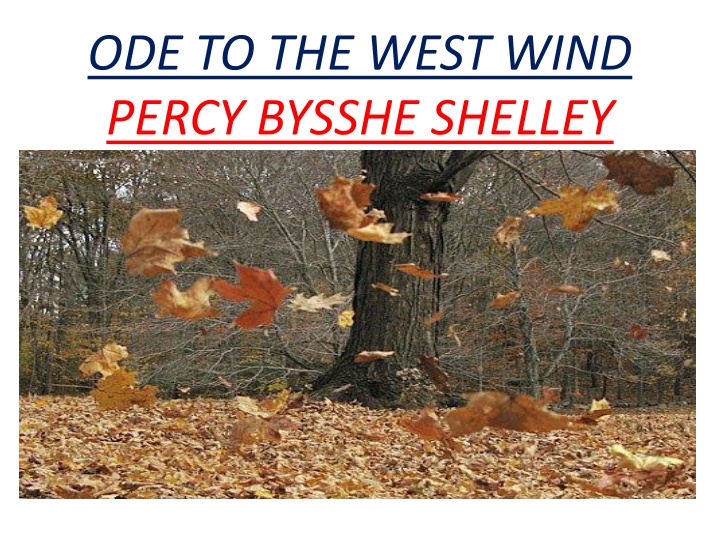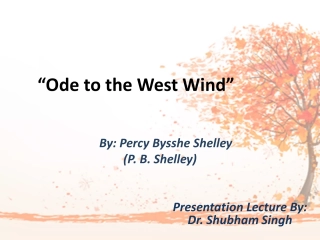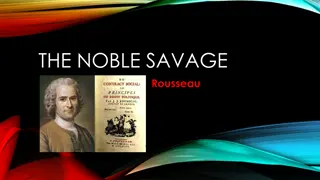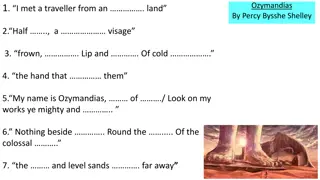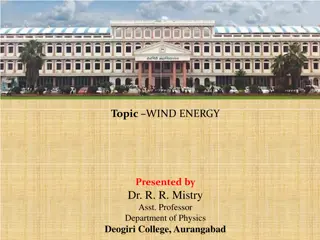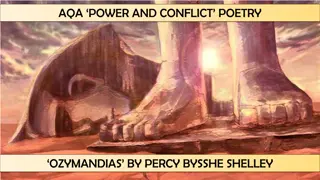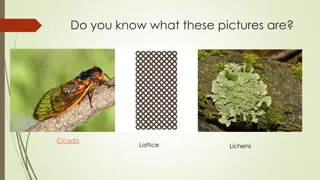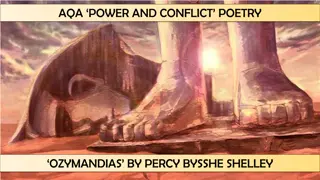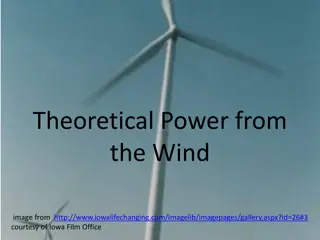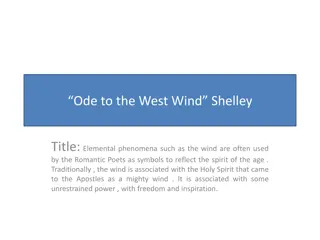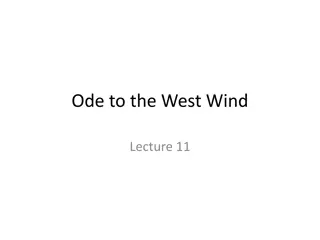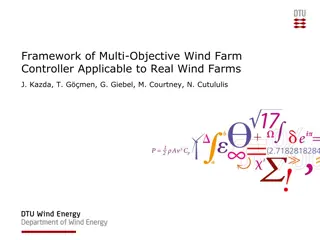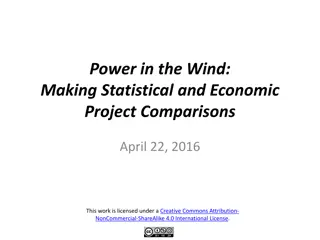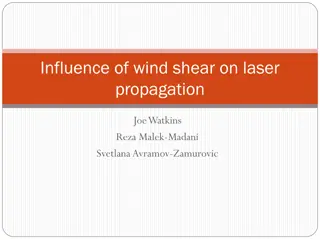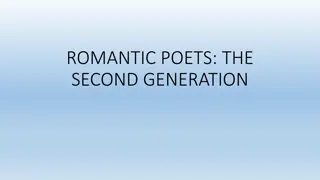Analysis of "Ode to the West Wind" by Percy Bysshe Shelley
Explore the imagery and symbolism in Percy Bysshe Shelley's "Ode to the West Wind." This romantic poem delves into themes of nature, change, and the power of the wind, captivating readers with its profound musings. Delve into the stanzas that illustrate the wind's dual role as both a destroyer and preserver, bringing forth new beginnings amidst turmoil. The poet's yearning to merge with the West Wind echoes a poignant cry for liberation and renewal, culminating in the iconic line, "If Winter comes, can Spring be far behind?"
Download Presentation

Please find below an Image/Link to download the presentation.
The content on the website is provided AS IS for your information and personal use only. It may not be sold, licensed, or shared on other websites without obtaining consent from the author.If you encounter any issues during the download, it is possible that the publisher has removed the file from their server.
You are allowed to download the files provided on this website for personal or commercial use, subject to the condition that they are used lawfully. All files are the property of their respective owners.
The content on the website is provided AS IS for your information and personal use only. It may not be sold, licensed, or shared on other websites without obtaining consent from the author.
E N D
Presentation Transcript
ODE TO THE WEST WIND PERCY BYSSHE SHELLEY
FIRST STANZA SUDDEN GUSH OF THE WIND DRIVES LEAVES OF EVERY KIND SEEDS ARE CARRIED EVERYWHERE SEEDS BRING LIFE,NEW HOPE DESTROYER AND PRESERVER IS THE WIND
SECOND STANZA APPEARANCE OF VERY DARK CLOUDS CLOUDS ARE COMPARED TO LONG HAIRED MESSENGERS WINDS BRING CLOUDS AND CLOUDS BRING RAINS AND THUNDERCLAPS THERE WILL BE A NEW BEGINNING
THIRD STANZA ANOTHER WONDERFUL STANZA THE MIGHTY WIND WAS SLEEPING FAR AWAY IT WAS WITNESSING THINGS ITS DISLOCATION ONLY UPSET CERTAIN FOLIAGE BENEATH THE OCEAN THE ATLANTIC MAKES WAY FOR HER POET ASKS EVERYONE TO LISTEN
FOURTH STANZA THE POET IS RESTLESS CRAVES FOR THE WIND S COMPANIONSHIP LONGS HELPLESSLY TO BREAK AWAY FROM EVERY BONDAGE THIS STANZA IS THE CORE OF THE POEM
FIFTH STANZA ANOTHER PASSIONATE STANZA OF YEARNING SHELLEY S CRY TO MERGE WITH THE WEST WIND LIKE DEAD LEAVES MAY ALL DEAD AND ROTTEN ELEMENTS BE DRIVEN AWAY FROM HIM LAST TWO MAGNIFICENT LINES IN ENGLISH LITERATURE
THE MOST MEMORABLE LINE OF THE POEM If Winter comes, can Spring be far behind?
